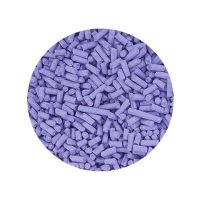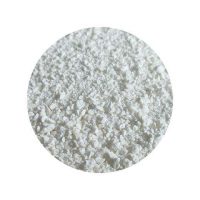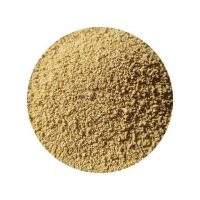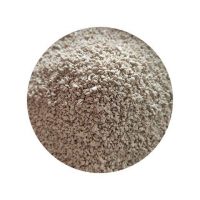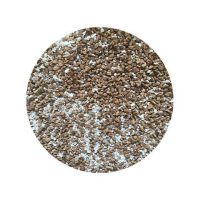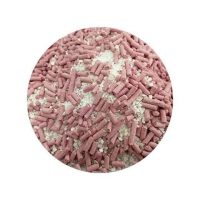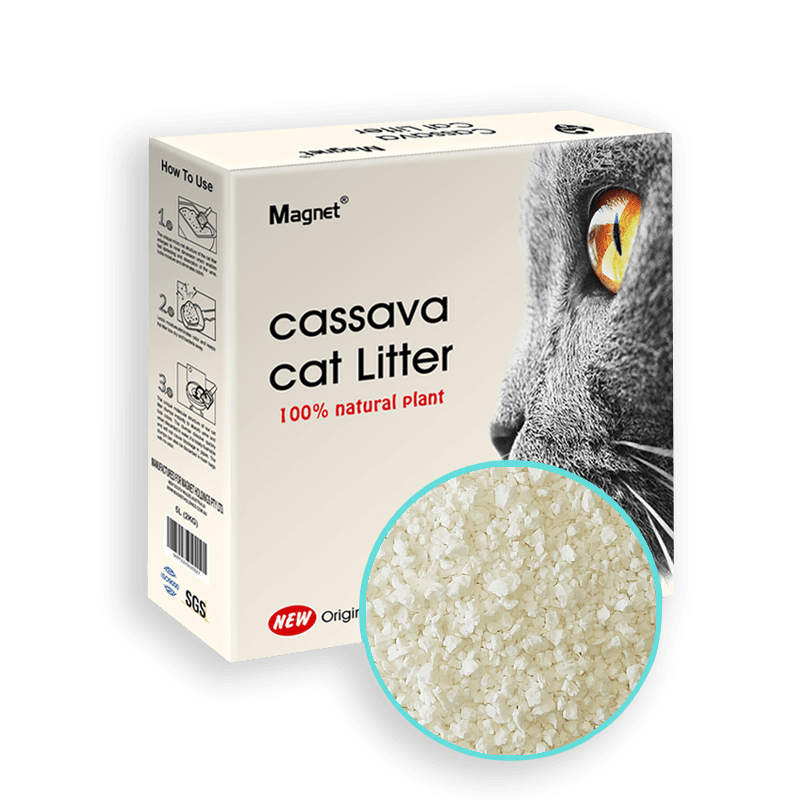Sharing your home with both cats and dogs can be a rewarding experience, but it also presents unique challenges. One common concern among pet owners is the potential toxicity of cat litter to dogs. While most cat litters aren’t inherently poisonous, certain types and situations can pose risks.
This blog post will delve into the potential dangers of dog cat litter ingestion, explore the different types of litter and their associated risks, and offer practical tips to prevent your dog from accessing or consuming cat litter.
Is Cat Litter Toxic for Dogs
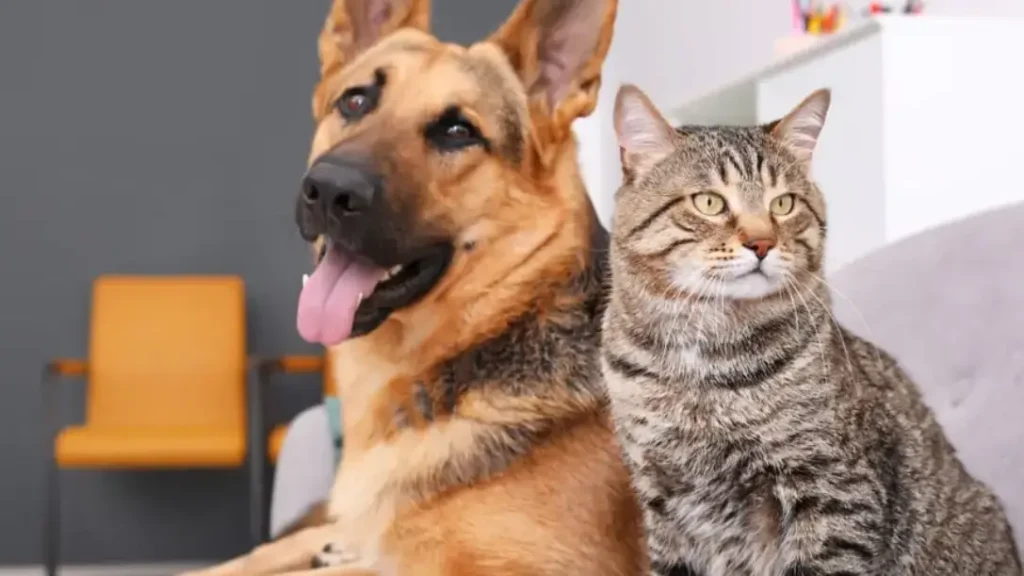
While cat litter itself isn’t typically toxic, it can pose a danger to dogs, especially clumping varieties.
Here’s why cat litter is safe to dogs:
- Intestinal Blockages: Clumping litter can expand in the intestines when ingested, potentially causing a blockage.
- Irritation: Both clumping and non-clumping cat litters can irritate the dog’s digestive system.
- Toxicity (in some cases): Some types of litter may contain chemicals that can be harmful to dogs if ingested in large quantities.
Important Note: If you suspect your dog has eaten cat litter, especially a large amount, or if you notice any signs of illness (vomiting, diarrhea, lethargy, etc.), contact your veterinarian immediately.
Are Cat Litter Crystals Toxic to Dogs
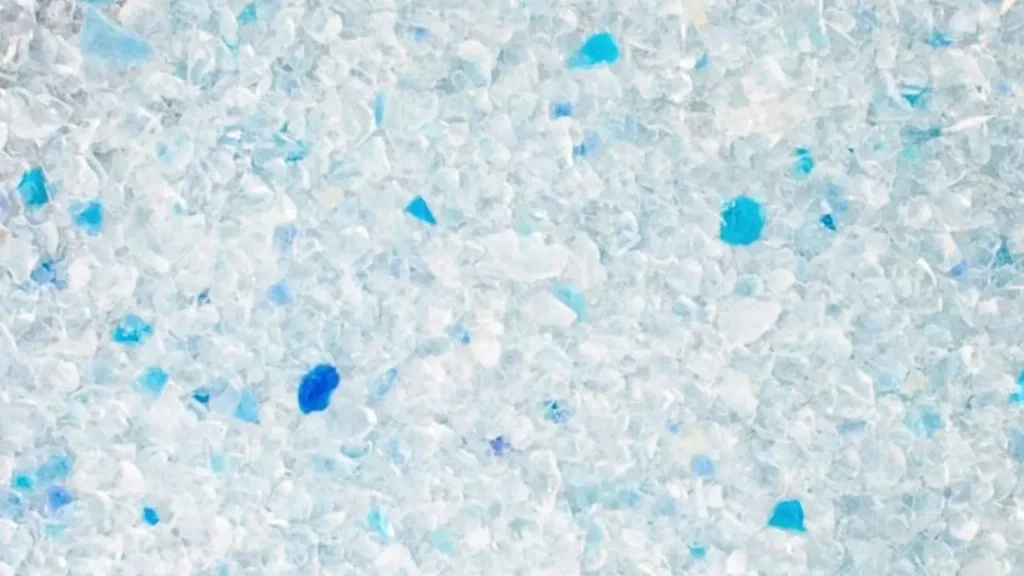
Cat litter crystals, also known as silica gel litter, are generally considered non-toxic to dogs.
Composition: They are primarily made of silica gel, which is a porous material that absorbs moisture.
Low Toxicity: While not inherently poisonous, ingesting large amounts of silica gel can cause:
- Gastrointestinal irritation: Leading to vomiting, diarrhea, and abdominal discomfort.
- Dehydration: Silica gel is highly absorbent and can absorb fluids in the digestive system.
Important Note:
- Even if non-toxic, ingestion should be avoided. If your dog eats a significant amount of silica gel litter, it’s advisable to monitor them closely for any signs of illness.
- Contact your veterinarian if you notice any concerning symptoms such as vomiting, diarrhea, lethargy, or decreased appetite.
Why Does My Dog Eat Cat Litter
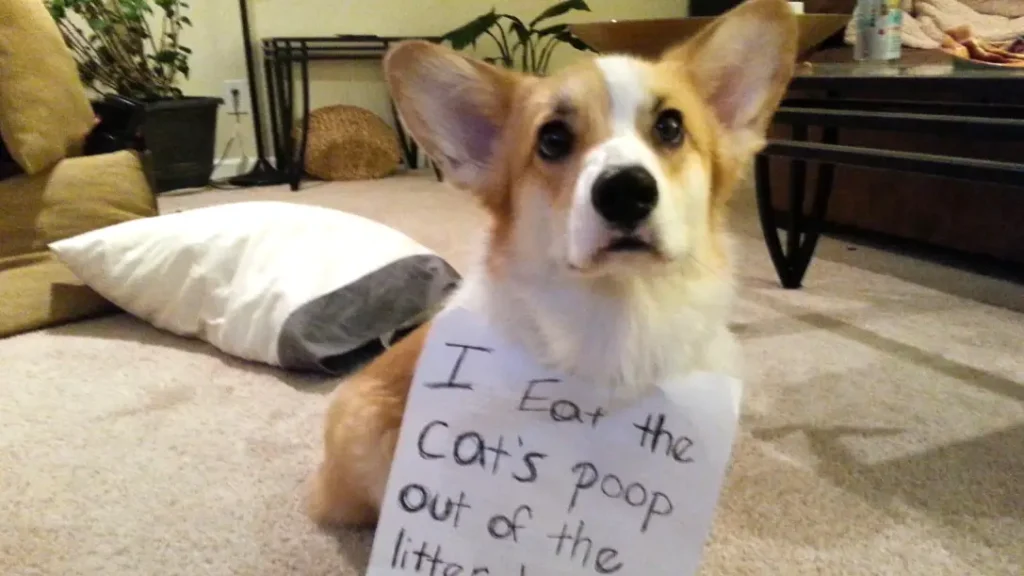
There are a few reasons why does your dog keep eating cat litter:
- Curiosity: Puppies and young dogs are naturally curious and may explore the world with their mouths.
- Boredom: If your dog is bored or understimulated, they may seek out unusual activities, such as eating cat litter.
- Nutritional deficiencies: In some cases, dogs may eat non-food items due to a lack of essential nutrients in their diet.
- Medical conditions: Certain medical conditions, such as intestinal parasites or digestive disorders, can sometimes lead to pica (the ingestion of non-food items).
Important Note: If your dog is consistently eating cat litter, it’s crucial to consult with your veterinarian. They can help determine the underlying cause and recommend appropriate treatment or behavioral modification strategies.
Symptoms of Dog Eating Cat Litter
If your dog has eaten cat litter, you may notice the following dog eating cat litter symptoms about what happens if a dog eats cat litter:
- Vomiting: This is a common symptom, as the dog’s body may try to expel the foreign material.
- Diarrhea: The litter can irritate the dog’s digestive system, leading to loose stools.
- Constipation: Some types of cat litter, especially clumping varieties, can expand in the intestines and cause a blockage.
- Abdominal pain: Your dog may show signs of discomfort, such as restlessness, whining, or guarding their abdomen.
- Lack of appetite: The dog may lose interest in eating due to nausea or discomfort.
- Lethargy: The dog may appear tired or listless.
Important Note: If you suspect your dog has eaten cat litter, especially a large amount, or if you notice any of the above symptoms, contact your veterinarian immediately.
How to Keep Dog Out of Cat Litter
Keeping your dog out of the cat litter box can be a challenge, but here are some effective methods:
1. Physical Barriers:
- Enclosed Litter Box: A covered box provides privacy for your cat and physically restricts your dog’s access.
- Pet Gate: Install a gate to block off the area where the litter box is located.
2. Training:
- “Leave It” Command: Train your dog to leave the litter box area alone.
- Positive Reinforcement: Reward your dog for staying away from the box.
- Supervision: Closely monitor your dog, especially when the cat is using the box.
3. Strategic Placement:
- Place the litter box in a location that is difficult for your dog to reach.
- Consider elevating the box slightly to make it harder for your dog to access.
4. Litter Box Covers:
- Use a cover specifically designed to deter dogs while still allowing cats easy access.
Important Considerations:
- Cat’s Preferences: Ensure the chosen method doesn’t stress or inconvenience your cat.
- Dog’s Behavior: Some dogs are more determined than others. You may need to try a combination of methods.
- Consistency: Consistent training and management are crucial for success.
If you’re struggling to keep your dog out of the litter box, consult with a veterinarian or a certified animal behaviorist for personalized guidance.
Can Cat Litter Make Dogs Sick
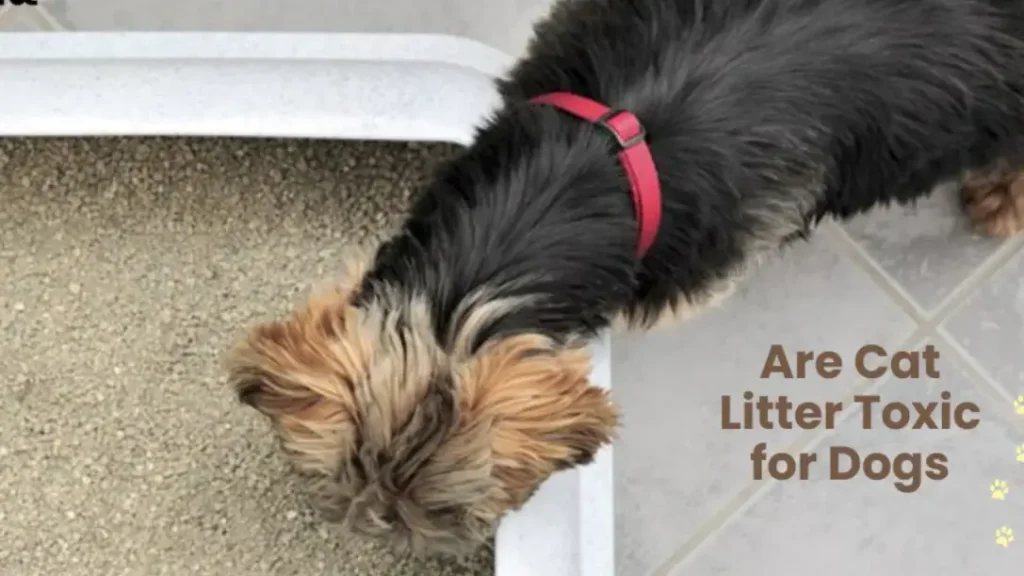
Yes, cat litter can make dogs sick, especially clumping varieties.
Here’s why:
- Intestinal Blockages: Clumping litter can expand in the intestines when ingested, potentially causing a blockage.
- Irritation: Both clumping and non-clumping litters can irritate the dog’s digestive system.
- Toxicity (in some cases): Some types of litter may contain chemicals that can be harmful to dogs if ingested in large quantities.
Symptoms of Illness:
- Vomiting
- Diarrhea
- Constipation
- Abdominal pain
- Lack of appetite
- Lethargy
If you suspect your dog has eaten cat litter, or if you notice any of the above symptoms, contact your veterinarian immediately.
Can Dogs Be Allergic to Cat Litter
Yes, it’s possible for dogs to develop allergies to cat litter.
Allergens:
- Dust: Some litters, especially dusty ones, can irritate a dog’s respiratory system.
- Scents: Fragrances added to some litters can trigger allergic reactions in sensitive dogs.
- Mold: If the litter box isn’t cleaned frequently, mold can grow, which can be a significant allergen for dogs.
- Cat Dander: Even if the dog doesn’t directly ingest the litter, it can come into contact with cat dander and urine residue that may be present on the litter.
Symptoms:
- Sneezing
- Coughing
- Runny nose
- Itchy skin
- Eye irritation
If you suspect your dog has a cat litter allergy, consult with your veterinarian. They can help diagnose the allergy and recommend appropriate treatment options, such as:
- Switching to a different type of litter: Consider using dust-free, unscented, and low-tracking litters.
- Improving litter box hygiene: Clean the litter box more frequently to minimize dust and mold.
- Air purification: Using an air purifier in the home can help reduce airborne allergens.
- Medications: In some cases, your veterinarian may prescribe medications to manage your dog’s allergy symptoms.
What to Do if a Dog Eats Cat Litter
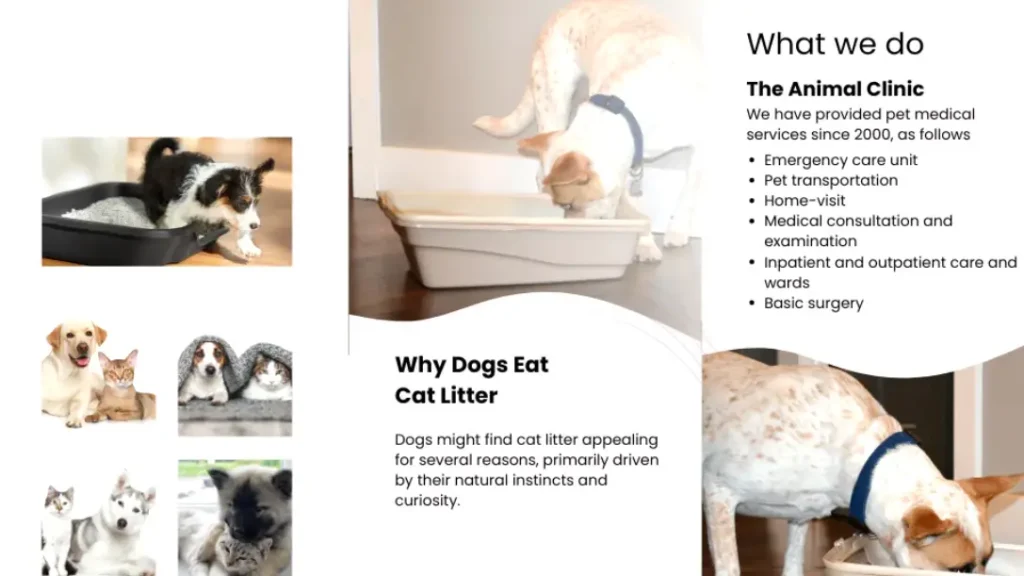
If you suspect your dog has eaten cat litter, here’s what to do when your dog eats cat litter:
Assess the Situation:
- Type of Litter: Determine the type of litter ingested (clumping, non-clumping, crystals).
- Amount Ingested: Estimate how much litter your dog may have eaten.
- Observe Your Dog: Monitor your dog closely for any signs of illness.
Contact Your Veterinarian:
- Immediate Contact: If your dog has eaten a large amount of litter, especially clumping varieties, or if you notice any concerning symptoms, contact your veterinarian immediately.
- Consult for Guidance: Even if you don’t see immediate signs of distress, it’s advisable to contact your veterinarian for guidance. They can assess the situation and advise on the necessary course of action.
Monitor for Symptoms:
- Watch for: Vomiting, diarrhea, constipation, abdominal pain, lack of appetite, lethargy.
- Contact your veterinarian if you observe any of these symptoms.
Important Notes:
- Clumping litter poses the highest risk due to the potential for intestinal blockages.
- Silica gel litter (crystals) can cause gastrointestinal irritation and dehydration.
- Early intervention is crucial for the best possible outcome.
Conclusion
Cat litter, while not inherently toxic, can harm dogs, especially clumping varieties. Ingestion can lead to intestinal blockages, irritation, and even toxicity depending on the type of litter. If your dog shows any signs of illness after potential cat litter ingestion, seek immediate veterinary attention.
For pet-safe and high-quality cat litter options, consider our wholesale offerings. We provide a variety of safe and effective litters to keep your feline friends healthy and happy. Contact us today to learn more about our wholesale options and find the perfect litter for your needs.


